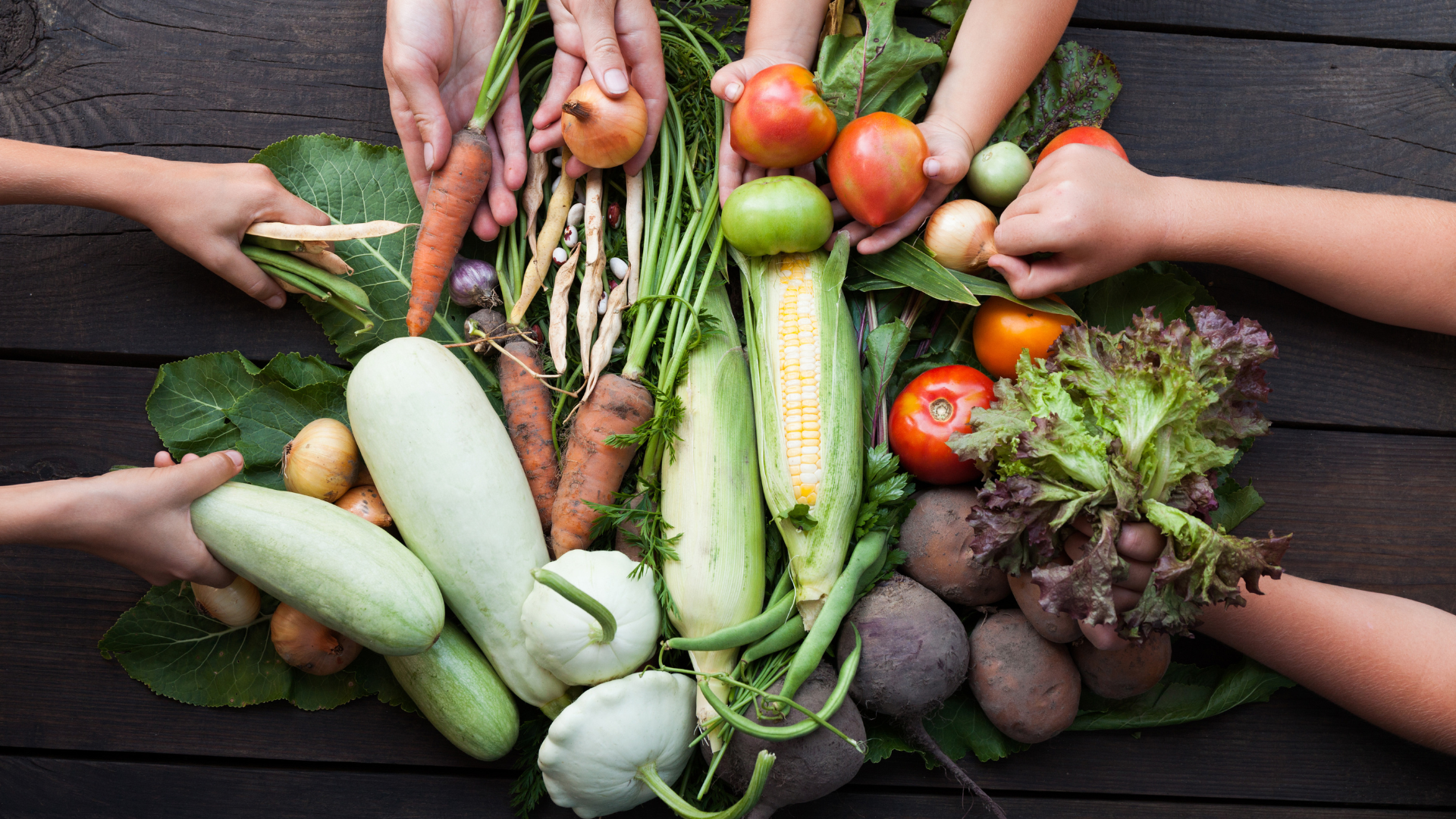Restaurant sustainability is now a key focus for venues that want to stay competitive. As more consumers make eco-conscious choices, they expect the businesses they support to do the same.
For restaurant owners and managers, sustainability isn’t just reducing waste or cutting costs. It’s about optimising operations to meet modern expectations. Optimising operations with sustainability in mind can lead to smoother services, happier staff and more satisfied customers.
From energy efficiency to waste management, taking even small steps toward a greener operation benefits the environment and your bottom line. Read on for our comprehensive guide to bolstering sustainability in your business.
Why is restaurant sustainability important?
Sustainability in restaurants offers a range of significant benefits for both the environment and business operations.
Key reasons why focusing on sustainability is important for your venue include:
- Influences consumer purchasing decisions: Consumers are increasingly choosing to buy from sustainable brands in the United Kingdom and in Australia. Sustainability therefore plays a crucial role in attracting eco-conscious diners.
- Cost savings on food waste: Reducing food waste is environmentally responsible and a good financial move. Restaurants can save significant costs by optimising portion sizes, improving inventory management and finding ways to repurpose excess ingredients.
- Energy cost reductions: Implementing energy-efficient equipment and practices can lower utility bills. Changes like switching to LED lighting or optimising kitchen appliance usage can yield substantial savings over time.
- Marketing benefits: Positioning your restaurant as a sustainable and eco-friendly business opens up new marketing opportunities. Promoting green initiatives through your website, social media, and menu can attract customers to prioritise sustainability. Show off your passion for sustainability and invite like-minded diners to enjoy your venue.
- Competitive differentiation: Standing out as a sustainable restaurant can differentiate your business from competitors, especially in areas where otherwise eco-conscious dining options are limited or unavailable.
- Enhances brand loyalty: People are more likely to become loyal customers of a business if that business aligns with their values. Sustainability can foster deeper connections and encourage repeat visits from diners who care about the environment.

7 ways to improve restaurant sustainability
Making your restaurant more sustainable doesn’t have to be overwhelming. By adopting a few key practices, you can reduce your environmental impact and improve your operational efficiency at the same time. Here are some actionable steps to help your restaurant become eco-friendlier and more sustainable.
1. Reduce food waste
Reducing food waste is one of the most impactful ways for a restaurant to become more sustainable. Food waste doesn’t just contribute to environmental issues. It also directly affects your bottom line.
Every dish thrown out is a financial loss in terms of ingredients, labour, and energy used to produce it. By minimising food waste, a restaurant can significantly lower operational costs and promote sustainability.
Implementing better inventory management, optimising portion sizing and repurposing leftover ingredients can go a long way toward reducing waste. When food ends up going from a customer’s plate to the bin, your restaurant is losing money in the process.
Your day-to-day operations may need to be altered to achieve a more sustainable approach to food waste. Ensure daily inventory management practices like first-in, first-out (FIFO) are being followed. Carefully review dishes with leftover food and see what you can change.
If you really want to showcase your commitment to sustainability, why not go all-out with a zero waste menu? Zero waste menus can be achieved through root-to-shoot and nose-to-tail philosophies using whole ingredients. Coupled with repurposing leftover food and pickling ingredients that are set to go in the bin, you can achieve zero waste in your restaurant.
Zero waste menus have been implemented in all kinds of locations, from small Sydney eateries to Hilton Hotels in the UK. Even if you can’t achieve zero waste in your restaurant, striving in this direction is an excellent starting point.
Composting food scraps or partnering with local food banks to donate unused food can further enhance your restaurant's eco-friendly practices, benefiting the environment and your community.

2. Use energy-efficient appliances
Investing in energy-efficient appliances is crucial to making your restaurant more sustainable. Reducing energy consumption can lower your environmental footprint and significantly cut utility costs, making your business more cost-efficient in the long run.
Energy-efficient equipment uses less power and water while still delivering high performance, helping restaurants operate more sustainably.
Regular maintenance is key in the food industry to ensure appliance energy efficiency and safety. Also, consider installing smart thermostats and energy management systems to monitor and reduce energy consumption.
Using thermal zones in your kitchen is another way to optimise energy efficiency. Grouping appliances based on heat output, like replacing hot ovens away from refrigeration units, ensures appliances don’t have to work harder than necessary to maintain a desired temperature.
This reduces energy waste to help maintain smoother, more efficient service.
3. Sustainable packaging
The use of sustainable packaging is an essential component in making your restaurant more eco-friendly. Traditional takeaway packaging, like plastic containers, coffee cups and cutlery, contributes significantly to global waste and pollution.
In particular, single-use plastics take hundreds of years to break down, creating a long-lasting environmental burden. Unfortunately, UK consumers throw away billions of disposable food containers and utensils every year, while Australians throw away one million tonnes of single-use plastic.
With the rise in takeaway and delivery services, a restaurant is uniquely positioned to reduce this impact by switching to more sustainable packaging solutions.
Choosing eco-friendly alternatives like cardboard, bamboo or biodegradable materials can reduce waste and enhance your sustainability efforts. For example, cardboard containers are easily recyclable and compostable, so they’re a responsible choice for takeaway meals.
Bamboo is another durable, renewable resource used for cutlery and food packaging, while biodegradable options break down more quickly in landfills, leaving fewer pollutants behind.
Offer discounts to customers who bring their reusable containers or partner with suppliers prioritising eco-friendly packaging. This ensures you reduce your environmental footprint while at the same time appealing to customers who value environmentally conscious choices.

4. Prioritise local suppliers
Using local suppliers is a powerful way to reduce your impact on the environment as a restaurant.
Sourcing ingredients locally minimises greenhouse gas emissions typically associated with long-distance transportation in the supply chain, such as air freight and trucking. This means fresher food on tables, lower carbon emissions and a smaller footprint overall.
Beyond sustainability, local sourcing often means better-tasting food. Ingredients from nearby farms and suppliers tend to be fresher, as they’re harvested at peak ripeness and spend less time in transit. The freshness translates into higher-quality dishes that set you apart from competitors.
Working directly with local producers and farmers can also secure more affordable deals and cut out intermediaries, reducing your costs on high-quality, seasonal ingredients.
Another perk of choosing local suppliers who supply their own produce and other items is enhanced community engagement. When diners know their meal was made with locally sourced products, they often feel more connected to your business and the community.
The approach can open opportunities for collaboration between sustainable restaurants with local producers on special menus or events, embedding your restaurant as a key part of the local scene.
5. Sell more plant-based dishes
Introducing plant-based dishes to your restaurant’s menu is a simple but effective way to lower your carbon footprint. It can be a key way to participate in more sustainable practices.
Plant-based meals generally have a lower environmental impact than meat and dairy dishes. This is because meat, dairy, and animal-based food production typically require more water, energy and land to produce.
Incorporating plant-based dishes and their sustainability benefits helps attract a broader range of customers, including vegetarians, vegans, and flexitarians who consciously strive to reduce meat consumption.
As plant-based diets continue to rise in popularity, diverse menu options catering to these dietary preferences can expand your market reach. As a restaurant embracing the plant-based trend, you can position yourself as forward-thinking, eco-friendly and inclusive.
6. Be smart with water usage
Water usage in restaurants is typically quite high, from dishwashing to food preparation and sanitation.
Excessive water consumption contributes to water waste and can strain local resources. Additionally, treating and heating water consumes energy, amplifying a restaurant’s overall carbon footprint.
You can look at several methods to reduce your restaurant’s water consumption.
- Identifying and promptly repairing leaks and drips prevents unnecessary water loss.
- Using low-flow taps and pre-rinse spray valves to reduce water use in everyday operations.
- Upgrading to water-efficient dishwashers and only running them with full loads can further decrease water consumption without compromising efficiency.
Incorporating these water-saving measures helps the environment and offers substantial cost-saving opportunities. Reducing water waste lowers utility bills, leading to more efficient and economical restaurant operations.
Reducing water use contributes to a more streamlined, cost-effective business model while demonstrating a commitment to sustainability that resonates with today’s consumers.
7. Environmentally-friendly cleaning products
One area you may not have considered in terms of your restaurant’s sustainability is cleaning products. Many cleaning products include ingredients that can have negative impacts on the environment. This includes chemicals like ammonia, chlorine and sodium hypochlorite.
These chemicals can cause environmental damage as they are released into the air and waterways. They can even cause negative health consequences if they build up in your restaurant over time.
Instead, opt for more eco-friendly cleaning products made with natural ingredients. In many cases, these products can be just as effective as their traditional counterparts, without the sustainability trade-off.
Opt for eco-friendly cleaning options to help preserve the health of your team and the environment.
Optimise your restaurant with ResDiary
Restaurant sustainability practices and operational efficiency go hand in hand when running a successful restaurant. By adopting sustainable practices, restaurants can lower their environmental impact while saving money and improving overall performance.
ResDiary can help your business achieve its sustainability goals. With booking data, you can identify your busier and quieter periods. Maybe a particular section of your venue doesn’t need to be open during one service, or you could even close entirely on a certain day. This can save your business money on energy costs, labour and beyond.
We also support you as you try to reduce food wastage in your venue. With features like promotions and set menus, you can easily analyse which of your menus and dishes are selling the best. Cut the fat out of your food service for a more streamlined approach that reduces the need for excess ordering.
ResDiary’s restaurant reservation system even enables you to create branded communications you can automatically send to customers, highlighting your sustainable practices in a paper-free way. Book your free demo today and discover how ResDiary can transform your business.




